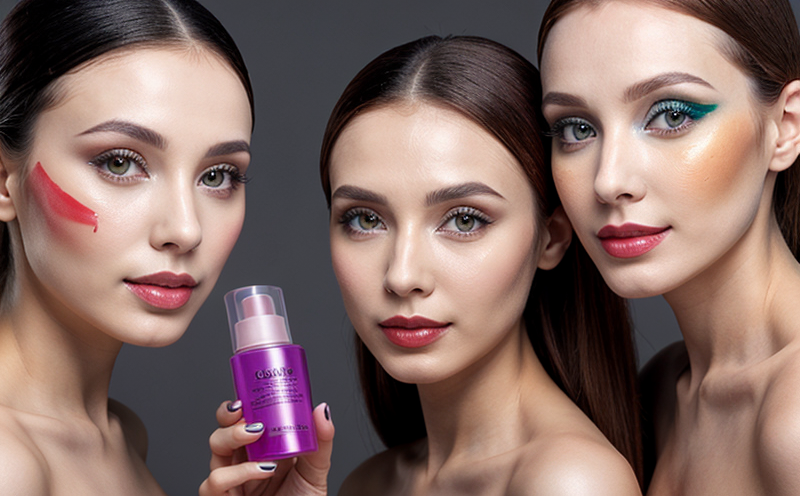Skin Irritation Testing for Cosmetic Formulations
Understanding and ensuring the safety of cosmetic products is a critical aspect of product development. Skin irritation testing plays an essential role in this process, providing insights into potential adverse effects on consumers. This service focuses specifically on evaluating the skin irritation potential of cosmetic formulations to ensure compliance with international standards such as ISO 10993-1 and ASTM F854.
During skin irritation testing, various methods are employed to assess how a cosmetic product might interact with human skin. The primary objective is to identify any adverse reactions that could occur upon contact with the formulation. This service leverages advanced laboratory techniques to simulate real-world conditions accurately and predict potential issues early in the development process.
The testing procedure typically involves exposing excised human skin samples or reconstructed human epidermis (RHE) cultures to the cosmetic formulation for a specified duration, followed by detailed analysis of any observed changes. These analyses can include histopathological examination, measurement of inflammatory markers, and evaluation of dermal permeability.
Accurate and reliable test results are crucial for regulatory compliance and consumer safety. By partnering with us, you gain access to state-of-the-art facilities equipped with the latest instrumentation, including scanning electron microscopes (SEM) and confocal microscopes, which provide high-resolution images of skin structures post-exposure.
Our team of experienced toxicologists ensures that every aspect of your cosmetic formulation is thoroughly evaluated. From initial consultation to final report generation, we follow strict protocols aligned with international guidelines. This approach guarantees consistent quality across all tests conducted within our laboratory.
The importance of skin irritation testing cannot be overstated in today’s highly competitive market landscape. Consumers increasingly demand transparency regarding the safety and efficacy of products they use daily. Adhering to rigorous testing procedures not only protects your brand reputation but also helps maintain trust with regulatory bodies worldwide.
By investing in this service, you demonstrate a commitment to responsible product development practices. It allows for early identification of potential risks associated with new formulations or ingredient combinations, thus minimizing costly recalls post-launch.
Benefits
- Comprehensive evaluation of skin irritation potential using advanced laboratory techniques.
- Early identification and mitigation of potential risks associated with cosmetic formulations.
- Enhanced product safety, reducing the likelihood of adverse reactions in end-users.
- Increased confidence in regulatory compliance through adherence to international standards like ISO 10993-1.
- Possibility for early-stage product development adjustments based on test results, leading to faster time-to-market.
- Improved brand reputation and consumer trust by demonstrating a commitment to safety and quality.
Why Choose This Test
Conducting skin irritation testing on cosmetic formulations offers several advantages over other methods. Firstly, it provides precise information about the potential for adverse effects directly related to the formulation itself rather than broader systemic responses. Secondly, this type of testing allows manufacturers to make informed decisions regarding ingredient selection and concentration levels early in their product development cycle.
Additionally, skin irritation tests are often more representative of actual usage conditions compared to simpler in vitro models or animal studies. This realism makes the results more applicable when predicting real-world performance. Moreover, these tests contribute significantly towards meeting stringent regulatory requirements imposed by various countries and regions around the globe.
For quality managers and compliance officers looking to ensure their products meet all necessary safety standards, skin irritation testing provides a robust framework for achieving this goal. It enables companies to stay ahead of emerging trends in cosmetic safety science while maintaining high levels of customer satisfaction.
Competitive Advantage and Market Impact
In an increasingly regulated environment, demonstrating commitment to product safety is key to gaining competitive advantage. By incorporating skin irritation testing into your quality assurance process, you position yourself as a leader in responsible manufacturing practices.
The ability to provide transparent information about the safety profile of your cosmetic products can enhance brand perception and foster long-term relationships with consumers. In today’s fast-paced market, where consumer awareness is growing rapidly, being able to communicate effectively about product safety will be instrumental in maintaining a loyal customer base.
Furthermore, compliance with regulatory requirements ensures that your products are accepted by relevant authorities globally, opening up opportunities for international expansion without facing unnecessary delays or barriers. This can significantly impact market penetration and growth potential for any cosmetics company operating within this sector.





